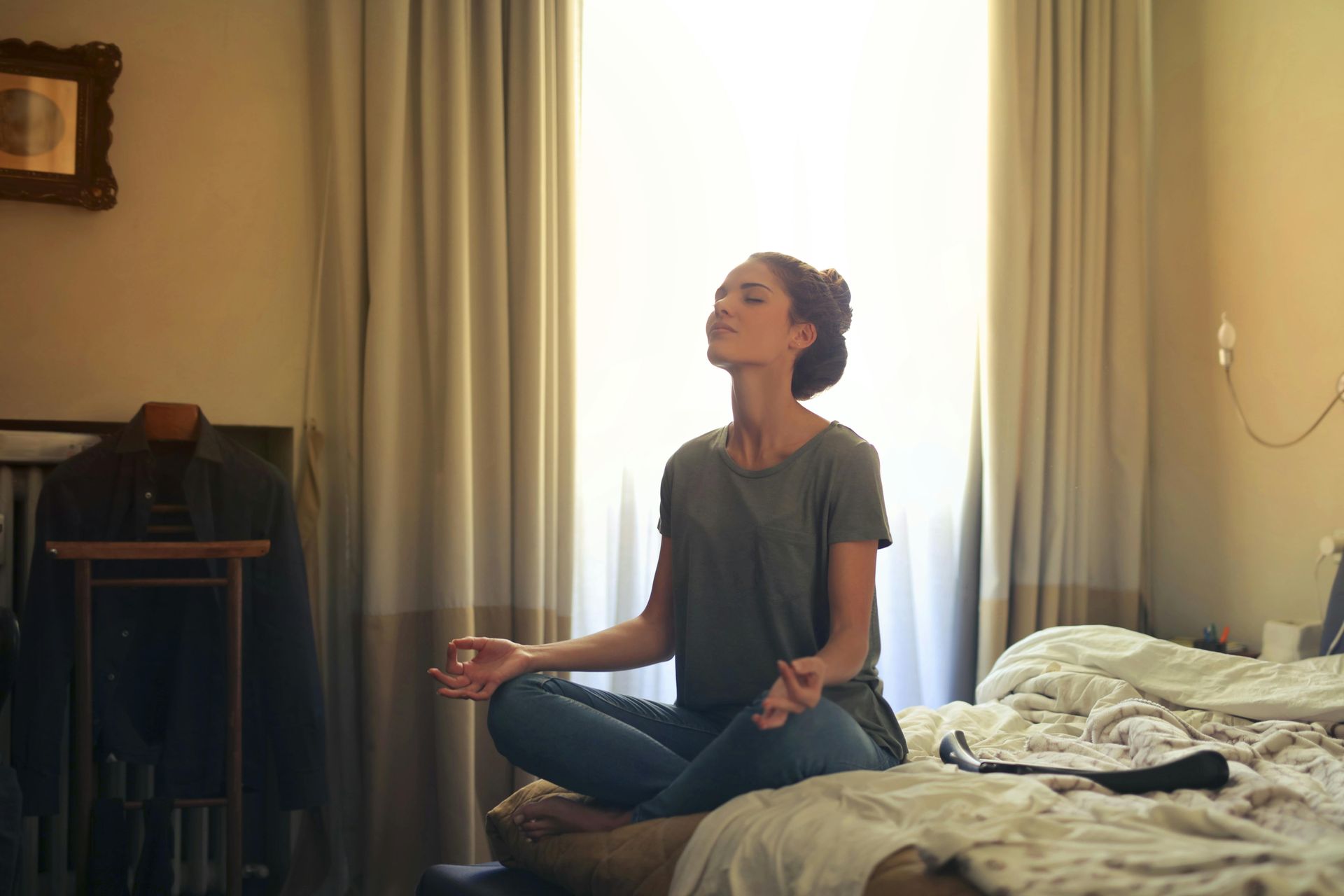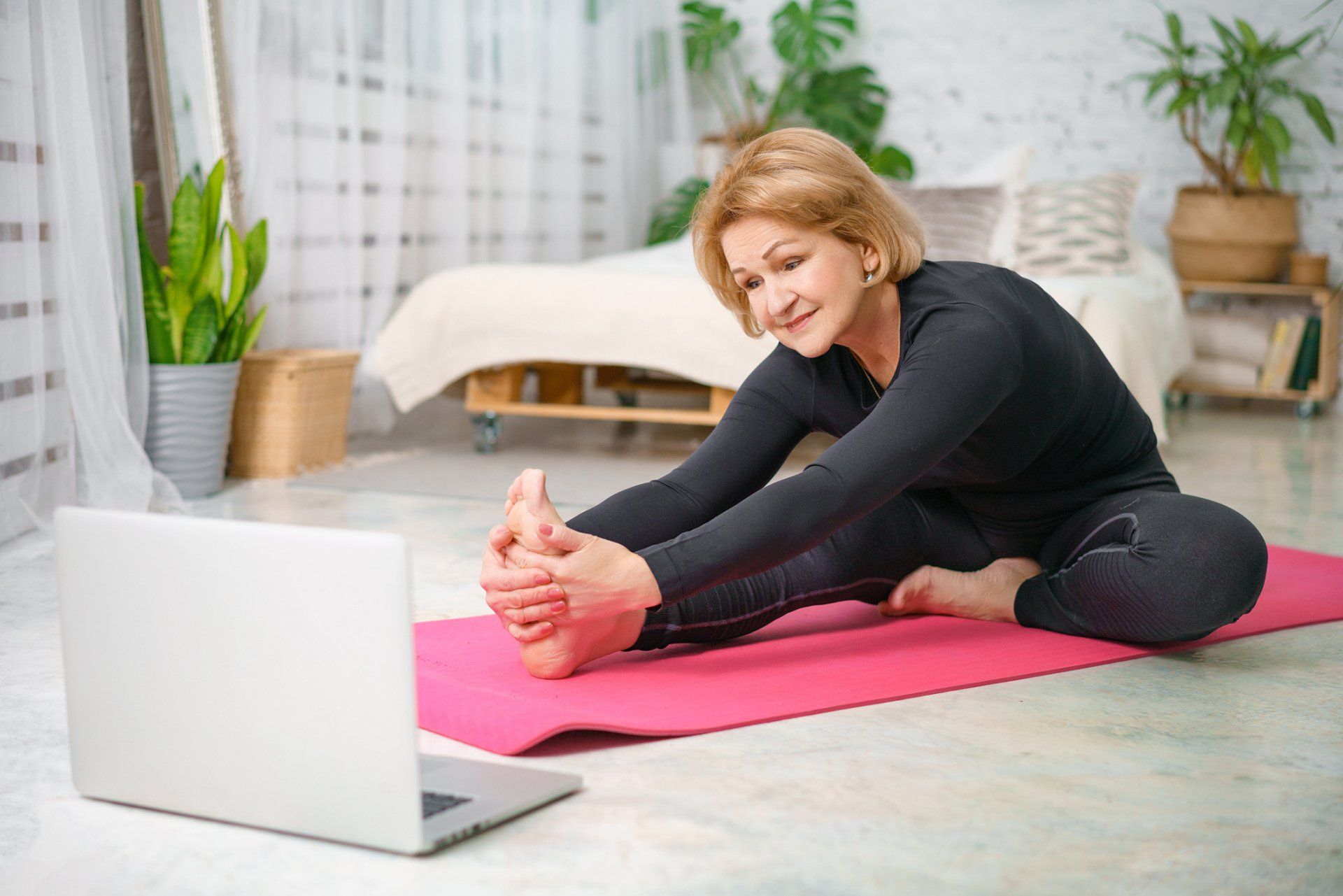Why Can't I Sleep?!?!?
Sleep Well, Live Well: The Role of Fitness in Sleep Quality During Perimenopause

Navigating through perimenopause can be challenging, especially when it comes to maintaining good sleep. Many women in their late 40s and early 50s find that their sleep quality diminishes as their bodies undergo hormonal changes. Uncover the importance of fitness and physical activity in enhancing sleep quality during perimenopause, offering practical advice to help you sleep better and live a healthier life.
Understanding Sleep Challenges During Perimenopause
Perimenopause marks the transition toward menopause, a time when a woman's body gradually produces less estrogen and progesterone, the hormones that regulate the menstrual cycle. This hormonal shift can lead to a variety of symptoms, including hot flashes, night sweats, mood swings, and disruptions in sleep patterns. These changes can significantly impact a woman's ability to get a restful nights sleep. Sleep disturbances during perimenopause are often characterized by difficulty falling asleep, staying asleep, or experiencing restful sleep. Women may find themselves waking up in the middle of the night feeling hot and sweaty or may struggle with anxiety and restlessness that keep them awake. The lack of quality sleep can affect daily life, causing fatigue,
irritability, and a decrease in overall health and well-being.
The Link Between Fitness and Sleep Quality
Engaging in regular physical activity is a proven strategy to enhance sleep quality. Exercise helps by regulating hormones, reducing stress, and improving mood. Physical activity, especially aerobic exercises like walking, cycling, or swimming, can increase the amount of deep sleep you get each night. Deep sleep is crucial for physical restoration and helps manage stress and anxiety. For women going through perimenopause, fitness can serve an additional role by helping manage and mitigate some of the physical symptoms associated with hormonal changes, such as weight gain and increased abdominal fat. Maintaining a healthy weight can reduce symptoms like hot flashes and night sweats, which are common sleep disruptors.
Practical Fitness Tips for Enhancing Sleep Quality During Perimenopause
Establish a Regular Exercise Routine
Consistency is key when it comes to exercise. Aim for at least 150 minutes of moderate aerobic activity or 75 minutes of vigorous activity each week. This can include activities like brisk walking, jogging, dancing, or swimming. It is also beneficial to incorporate muscle- strengthening exercises twice a week. Establishing a routine that fits into your daily schedule can help you stick with it over time. You might find it helpful to exercise at the same time each day, as this can establish a habit and signal to your body when it's time to move and when it is time to rest. What’s more, joining group fitness classes or finding a workout partner can provide motivation and accountability, making it more enjoyable and effective.
Outdoor Activities and Sunlight Exposure
Engaging in outdoor activities, especially in natural sunlight, can help regulate your body's internal clock or circadian rhythm. Sunlight exposure during the morning or early afternoon can improve your sleep-wake cycle, making it easier to fall asleep and wake up naturally. Activities like hiking, gardening, or even a morning walk can be beneficial.
Choose the Right Time to Exercise
Timing your exercise can also influence your sleep quality. Engaging in vigorous exercise too close to bedtime can have a stimulating effect, making it harder to fall asleep. Try to schedule your workouts earlier in the day to ensure that your body has time to wind down before bedtime. If evening workouts are your only option, consider gentler forms of exercise, such as light yoga or a walk, that won’t raise your heart rate as much. It’s also important to consider how different types of exercise affect you personally. For instance, some people might find that intense evening workouts hinder their sleep, while
others may not experience any negative effects.
Incorporate Relaxing Activities
While aerobic exercise is important, incorporating activities that promote relaxation can also improve sleep. Yoga, Tai Chi, and stretching can reduce stress and are excellent for calming the mind and preparing the body for sleep. These activities can be particularly beneficial in the evening, helping establish a soothing bedtime routine. These practices can also enhance flexibility, reduce muscle tension, and promote better circulation, all of which contribute to better sleep. Integrating mindfulness techniques, like meditation and deep breathing exercises, during these activities can further enhance the relaxation benefits, providing a holistic approach to managing stress and improving sleep quality during perimenopause.
Stay Hydrated and Mind Your Diet
Staying hydrated and watching what you eat can also affect your sleep quality. Avoid heavy meals, caffeine, and alcohol close to bedtime, as they can disrupt sleep. Instead, focus on a balanced diet rich in fruits, vegetables, whole grains, and lean proteins, which support overall health and help regulate your sleep cycle.
Build a Home Gym to Enhance Fitness and Sleep
Creating a space at home dedicated to exercise can make it much easier to stick to a fitness routine. A home gym doesn't need to be elaborate; it can start with a few key pieces of equipment, such as a yoga mat, resistance bands, a set of dumbbells, and perhaps a stationary bike or treadmill. Having these tools within easy reach encourages regular use, which in turn can improve sleep quality during perimenopause. When building your home gym, consider the space available. You might not have a large area for gym equipment; however, don’t let that stop you. Instead, opt for storage services for non-essential items to free up space. These units can store seasonal items or other household goods, providing a clutter-free area that is welcoming and conducive to your workout routine. A storage will help you maintain an organized space, minimize distractions, and create an environment that supports both your fitness and sleep health.
Avoid Overtraining
While exercise is beneficial, it’s also important not to overdo it. Overtraining, especially during perimenopause, can lead to increased fatigue and stress, ultimately disrupting sleep. It's important to listen to your body and provide adequate rest between workouts to allow for recovery.
Optimize Your Sleep Environment
Creating a sleep-conducive environment can enhance the benefits of fitness on sleep quality. This includes maintaining a cool, quiet, and dark bedroom. Using comfortable bedding and minimizing noise and light exposure can make a significant difference in sleep quality. Establishing a regular, relaxing bedtime routine can signal your body that it's time to wind down.
Monitor Your Progress
Keeping track of your sleep patterns and how they correlate with your exercise habits can help you identify what works best for your body. Consider keeping a sleep diary and note how you feel after different types of physical activities and at various times of the day. This can help you optimize your exercise routine to improve your sleep quality during perimenopause.
Closing Thoughts
Fitness isn't just about physical health; it's vital in managing sleep quality duringperimenopause. Understanding the challenges of sleep during this time and adopting a tailored exercise regimen can significantly improve your sleep quality. Regular physical activity, combined with good sleep hygiene, can help you navigate perimenopause more smoothly, ensuring that you sleep well and, by extension, live well.
keyword: sleep quality during perimenopause
Meta Description: Improve sleep quality during perimenopause with fitness tips that help you sleep well and live well.
https://www.pexels.com/photo/woman-sleeping-in-bed-near-smartphone-4473864/















